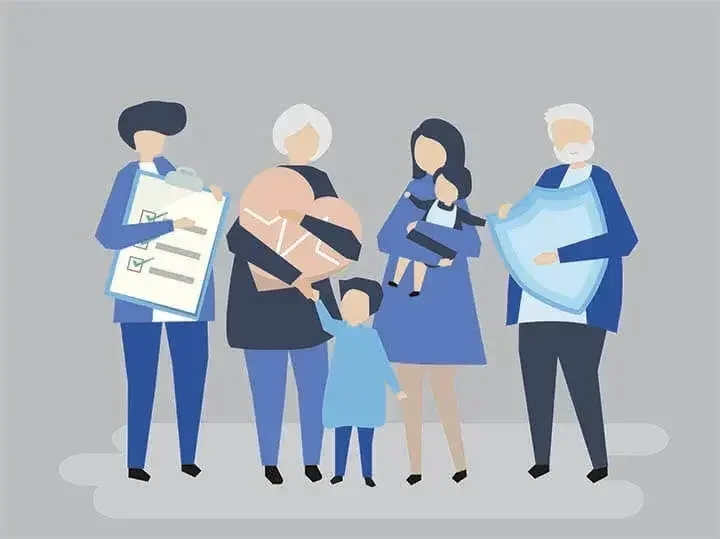With the coronavirus raging and most of normal life cancelled, many people are struggling with fear and anxiety. One way to cope, mental health professionals say, is to take control and make plans. Staying home, sanitizing, and scheduling Zoom calls with friends can help. But you can also ease your stress and protect your family by looking at the big picture and making an estate plan.

You don't have to be wealthy or have an "estate" to benefit from estate planning right now. Knowing you have a plan in place can give you peace of mind long after this pandemic has passed. And if you have extra time on your hands right now, an estate plan may be the ideal project. If you already have an estate plan, this is a good time to pull it out and make sure it's up to date.
How powers of attorney can help right now
Powers of attorney put someone in charge if you're unable to make decisions or take care of personal business. They can be especially important now when many hospitalized patients have limited ability to communicate with the outside world. There are two types of powers of attorney in a typical estate plan.
- A healthcare power of attorney appoints someone to communicate with healthcare providers and make decisions on your behalf if you can't do it yourself. You can talk to this person now about what you'd want if you were sick. A healthcare power of attorney can minimize uncertainty and conflict among family members during a difficult time.
- A durable general power of attorney names someone to handle your day-to-day business and legal affairs. The person you appoint can take over your finances and keep your life going until you're up and around again. When a trusted person can oversee the business side of your life, everyone feels less stressed.
Also, consider having powers of attorney for any child over 18. Without one, you'll probably have no authority to make decisions, communicate with healthcare providers, or handle finances for your young adult children.
Living will or advance directive
A living will, also known as an advance directive, gives instructions for the care you want at the end of your life. It's a grim thing to contemplate, but a living will can be a huge help to family members and healthcare providers who must make decisions in dire situations.
Living wills are a standard part of most estate plans. Hospitals and other organizations also offer living will forms that don't require you to pay any legal fees for estate planning.
Will or trust estate planning
Many people think of a will as a document that describes who gets your possessions if you pass away. And it does serve that purpose. But by going through the process of preparing a will, you can do much more to protect your loved ones and make sure your wishes are carried out.
- You can choose a guardian who will raise your children if you are unable to. Otherwise, the decision will fall to the courts.
- You may discover you need the protection of a trust. A trust may help your family avoid the difficult probate process in some states. It may also be useful for long-term care planning, setting aside money for minor children, providing for family members with disabilities, minimizing estate taxes, or maintaining privacy.
- Estate planning gives you a chance to update beneficiary designations on assets like life insurance policies, pension funds, retirement accounts, and college savings accounts. Many of these go directly to the beneficiary you've named if you pass away.
People often put off estate planning because it's time-consuming, and no one wants to think about illness or the end of life. But right now, it's impossible to avoid the coronavirus, and many of us are struggling to fill the time we used to spend working, shopping, and socializing. The planning you do now can ease your worry and protect your loved ones for years to come.

